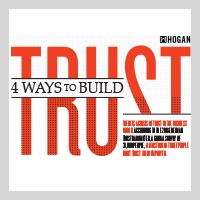 Why empathy, not necessarily transparency, may be the key to making a trustworthy first impression
Why empathy, not necessarily transparency, may be the key to making a trustworthy first impression
It’s your first day at your new job—an outside hire brought in to replace the outgoing manager at a mid-sized paper company. You’ve never met your new employees, most of whom have been working there more than a decade. How do you introduce yourself?
If your first instinct is an aggressive handshake and a no-nonsense statement of your intentions, you may want to think about it. According to social psychologist Amy Cuddy of the Harvard Business School, your new employees are subconsciously judging whether or not they can trust you based not on how competent or even transparent you seem, but by how warm and friendly you are.
“When we form a first impression of another person … we’re judging how … trustworthy the person is and trying to answer the question, ‘What are this person’s intentions toward me?’” Cuddy said in an interview with Wired.
This tendency is a legacy of our earliest ancestors.
“Ancient humans evolved as group-dwelling animals as the most effective response to the challenging environments in which our ancestors lived,” said Dave Winsborough, Hogan’s VP of Innovation and director of HoganX. “We thrived because we joined together to find food, bring down wild game, defend against attack from competing tribes, and share the burdens of child rearing.”
“Trust is … a central part of our ability to survive in complex environments,” wrote Dr. Art Markman, a professor of Psychology at the University of Texas. “When we cooperate, we're able to overcome just about any obstacle. That, of course, takes trust, not just in one another, but in the leaders who organize us.”
That need for trust carries through to modern organizations. People depend on their leaders and employers to have their best interests at heart. This view is confirmed by a large meta-analysis of personality and leader performance, published in the Journal of Applied Psychology, by Dr. Jeff Foster, Hogan vice president of science, and Dr. Blaine Gaddis, senior manager of product research. Gaddis and Foster found a strong correlation between the Hogan Personality Inventory (HPI) Interpersonal Sensitivity scale and ratings of trustworthiness.
Interpersonal Sensitivity describes people’s tact, perceptiveness, and their ability to form and maintain relationships. In other words, their ability to read the room and empathise with others. So, how can you seem more empathetic when you first meet someone? By making small talk, according to Cuddy.
“I think people make the mistake, especially in business settings, of thinking that everything is negotiation,” she said in Wired. “They think, ‘I better get the floor first so that I can be in charge of what happens.’ The problem with this is that you don’t make the other person feel warmth toward you. Warmth is really about making the other person feel understood. They want to know that you understand them.
“You can also establish trust by collecting information about the other person’s interests—get them to share things about themselves,” she continued. “Just making small talk helps enormously. Research proves that five minutes of chit-chat before a negotiation increases the amount of value that’s created in the negotiation.”
For more information about how to establish trust with your employees, check out our free ebook, 4 Ways to Build Trust.